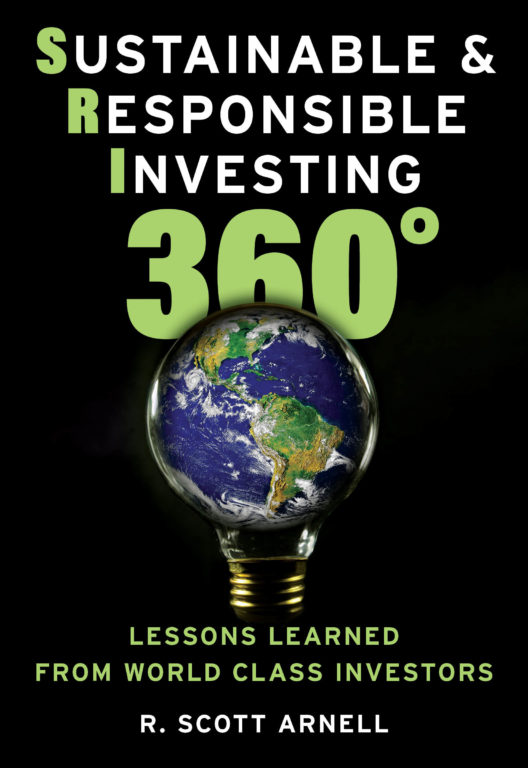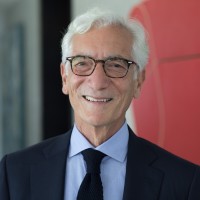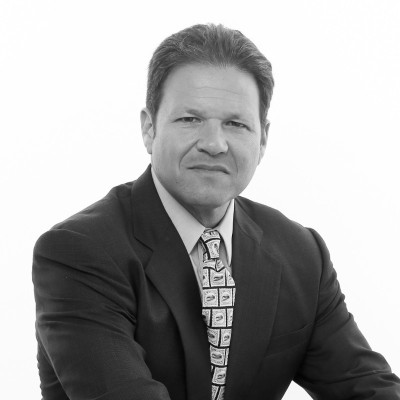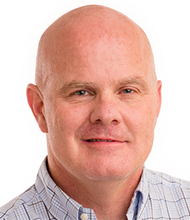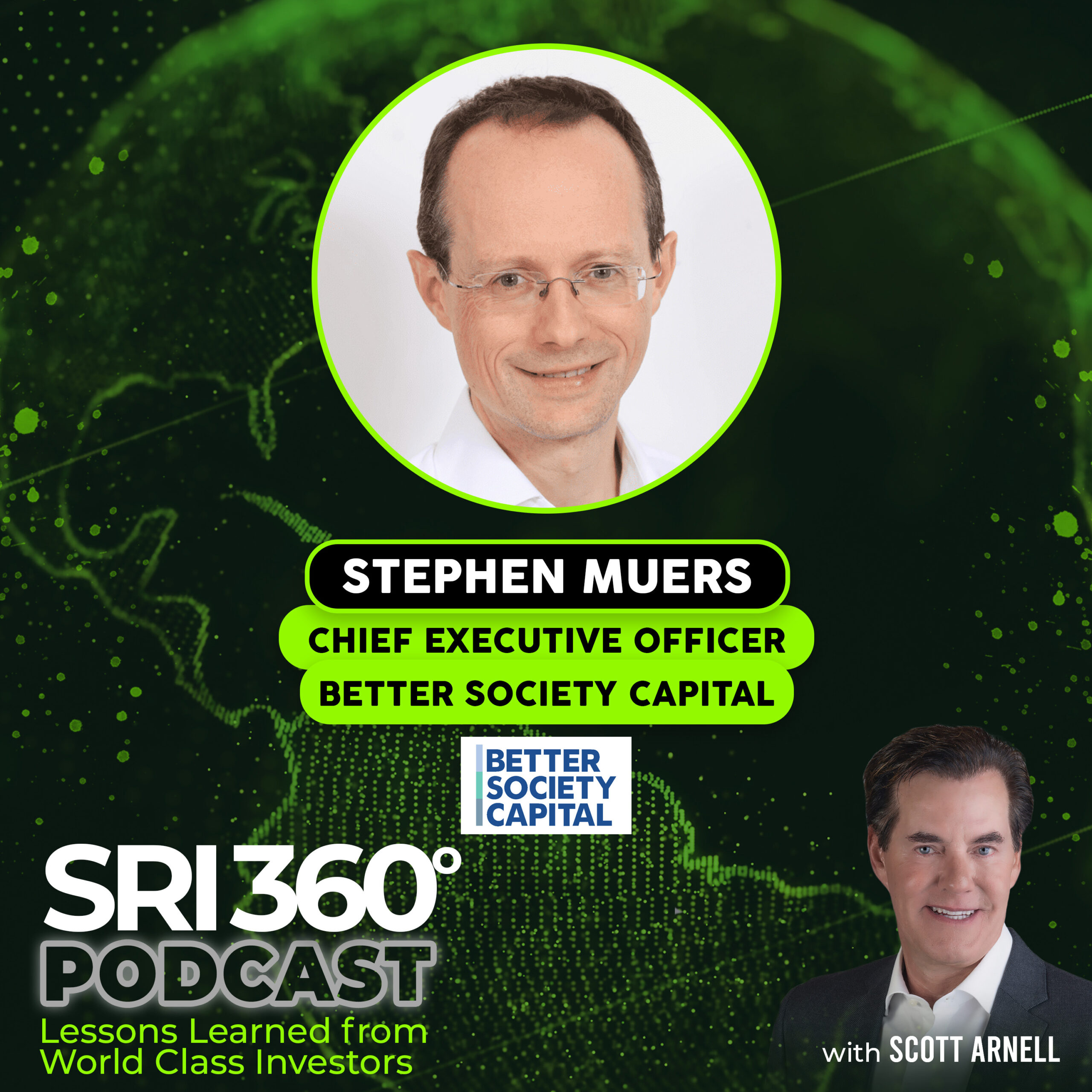
“Culture doesn’t just eat strategy for breakfast – it eats strategy for breakfast, lunch, and dinner, frankly. ”
— Stephen Muers
My guest today is Stephen Muers, Chief Executive Officer of Better Society Capital, the UK’s leading social impact-led investor.
Before he turned to the impact journey, Stephen had an impressive career in the UK government. But what sets him apart are the values that shaped him long before any career.
His story starts in the quiet town of Rugby, England, within a Quaker family deeply rooted in values of social conscience, equality, and integrity. His parents, both public sector professionals, brought him up with an awareness of the Quaker legacy in ethical business — all built on the belief that business should serve society.
That tradition of purpose over profit shaped Stephen from the start.
Growing up without a television, he spent much of his childhood with books, radio, and later, newspapers. Instead of TV shows, most evenings were filled with dinner table conversations about politics, current events, and how the world works — and, more importantly, why so often… it doesn’t.
That curiosity led him to Oxford to study Philosophy, Politics, and Economics, where he came across two ideas that would shape how he sees the world. Will Hutton’s The State We’re In exposed the messy realities of neoliberal economics, while Wittgenstein’s concept of language games revealed the subtle ways systems and language influence everything around us.
After graduating, Stephen’s career took him deep into the heart of the UK government. From the Prime Minister’s Strategy Unit to the Ministry of Justice, he worked on some of the country’s toughest policy challenges — child poverty, energy policy, prison reform. But no matter how sound the strategy, he kept running into the same brick wall.
It became painfully clear why Peter Drucker’s famous line rings so true: “Culture eats strategy for breakfast.”
As anyone who’s worked inside large institutions knows — what’s written in a report rarely survives contact with organizational culture. People’s behaviors, biases, and unspoken norms quietly overpower even the best-laid plans. Stephen saw it happen time and again.
And that’s what ultimately led him to Better Society Capital — the UK’s leading social impact investor, formerly known as Big Society Capital.
Founded with £400 million from dormant UK bank accounts (yes, really) and £200 million from the four main UK high street banks, BSC was built on an ambitious mission: not to grow its own assets, but to grow the entire UK social impact investment market.
Since 2011, that’s exactly what they’ve done — helping expand the market twelve-fold to over £10 billion. This capital now fuels social purpose organisations tackling everything from homelessness and domestic abuse to mental health and fuel poverty.
Stephen stepped into the CEO role shortly before the COVID-19 pandemic, juggling remote leadership and homeschooling his son — because why not tackle systemic change during a global crisis?
Today, he leads BSC’s work across four strategic verticals: Social and Affordable Housing, Social Lending, Social Outcomes, and Impact Venture.
Along the way, they’re also proving a critical point: impact and returns aren’t mutually exclusive. In fact, some of BSC’s most successful investments are delivering both — solid financial performance and deep social impact. A reminder that social investing, done right, doesn’t mean sacrificing returns.
As Stephen puts it, “The trade-off between social and financial returns is not linear.” And maybe that’s the real takeaway here — the future of finance won’t be about choosing sides. It’ll be about building markets where solving problems is part of the profit model, not separate from it.
Tune in to hear how BSC is making that future a reality.
Listen to the episode on Apple Podcasts, Spotify, Overcast, Podcast Addict, Pocket Casts, Castbox, YouTube Music, Amazon Music, or on your favorite podcast platform. You can watch the interview on YouTube here.
What was your favorite quote or lesson from this episode? Please let me know in the comments.
SCROLL BELOW FOR LINKS AND SHOW NOTES…
ADDITIONAL RESOURCES:
SHOW NOTES:
[00:00] Introduction
[03:51] Growing up in a Quaker family valuing equality, integrity, and humility
[13:17] Studying PPE at Oxford driven by love for politics
[17:17] Joining UK Civil Service
[22:17] Stephen’s government career: Shaping strategy, energy, housing, and justice policy
[30:23] Culture eats strategy for breakfast
[33:18] Joining Better Society Capital and stepping up as CEO
[37:42] BSC’s mission and theory of change
[40:33] The biggest barriers and misconceptions in social impact investing
[43:21] BSC’s unique £600M funding story
[49:37] BSC’s investment strategy
[53:01] Four BSC investment verticals
[01:01:13] Real examples of social impact investments and their returns
[01:06:38] Social investments can deliver competitive financial returns
[01:12:06] A closer look at catalytic capital
[01:12:50] Scaling BSC’s impact by mobilizing private capital
[01:13:56] BSC’s risk mitigation strategies
[01:15:46] BSC’s impact responsibility and what sets it apart
[01:17:48] Impact measurement and policy engagement
[01:21:21] Culture and Values at the Heart of Policy Making
[01:25:16] The biggest challenges and opportunities for social impact investment in the UK
[01:28:39] Rapid-fire questions
MORE STEPHEN MUERS QUOTES FROM THE INTERVIEW:
“BSC was funded with £600m – £400m from dormant bank accounts and £200m from major UK banks. The UK developed the concept of unlocking dormant accounts – untouched for 15 years – for social purposes, while still allowing owners to reclaim their funds anytime. The model has been so innovative that other countries have looked to replicate it. ”
— Stephen Muers
“Social investments definitely can deliver competitive returns – not always, and not in every case, but you can create something that looks and feels mainstream while also delivering clear, measurable social impact. ”
— Stephen Muers



